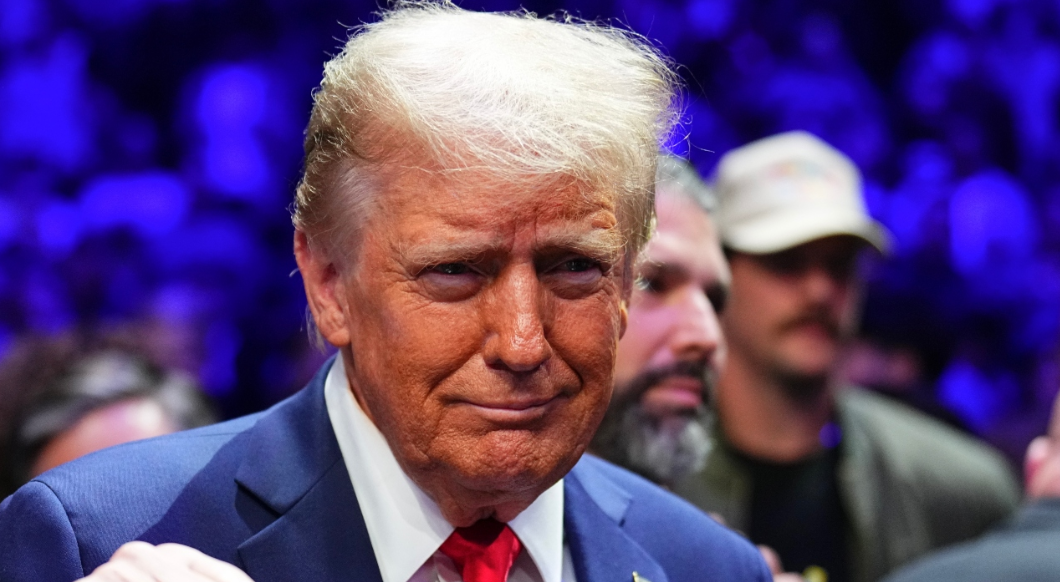Trump Will Have Chance To Nominate ‘Dozens’ Of Judges After Senate Deal

President Joe Biden’s administration and the Democrat Party are attempting to push through as many judicial nominees as possible before President-elect Donald Trump takes office, but their strategy faces significant challenges.
As Republicans positioned themselves to slow down the confirmation process, a last-minute agreement between the two parties allowed for votes on a limited number of district court judges. In exchange, Democrats agreed to halt votes on four circuit court nominees, Fox News reported.
This compromise paves the way for the incoming president to appoint four critical appellate judges and potentially dozens of additional district court judges.
A spokesperson for Senate Majority Leader Chuck Schumer confirmed to Fox News that the agreement involved pulling votes for four circuit court nominees who lacked sufficient support in exchange for advancing “more than triple the number of additional judges.”
“I’m glad that Republican senators are starting to show up to vote because some of the worst nominees are still awaiting confirmation precisely because they didn’t have adequate support,” said Judicial Crisis Network President Carrie Severino in an interview with Fox News.
“When Trump comes into office, he’s going to have dozens more vacancies to fill,” she added. “And that’s not even counting the judges who will take senior status over the next four years.”
CAPAction’s senior director of courts and legal policy, Devon Ombres, expressed frustration at the compromise, saying, “Frankly, I’m at a loss as to why they would get here.”
“It would be nice to see Democratic leadership and the White House try and push through and fill those vacancies where possible,” Ombres continued.
He predicted that several judges, primarily appointed by former President George W. Bush, would take senior status, creating additional vacancies for the president-elect to fill. Conversely, Ombres suggested that judges appointed by Presidents Bill Clinton and Barack Obama would likely remain active.
“[Trump will] still have a handful of vacancies that he’ll be able to appoint,” Ombres said. “But if Senate Republicans maintain the blue slip process, it will be tougher sledding to appoint in blue states. However, he will still have opportunities to strengthen circuits like the 11th.”
The remaining judicial nominations are expected to be addressed after the Thanksgiving break. Despite the agreement, Republicans are likely to scrutinize the nominees vigorously.
“Certainly, appellate judges are always going to be more important in our judicial system than district court judges,” Ombres explained. “But district court judges are still capable of issuing nationwide injunctions, striking down programs, and crafting sweeping opinions.”
The Senate will undergo significant changes in January as Republicans take control, including shifts in leadership roles.
Former Senate Republican Leader Mitch McConnell is set to chair two key committees, signaling his continued influence despite stepping down from Senate leadership.
McConnell announced he will chair the Appropriations Subcommittee on Defense, overseeing the defense budget, and the Senate Rules Committee, which manages Senate procedures and contested elections.
“America’s national security interests face the gravest array of threats since the Second World War. At this critical moment, a new Senate Republican majority has a responsibility to secure the future of U.S. leadership and primacy,” McConnell stated. “I intend to play an active role in this urgent mission.”
JUST IN
— Patrick Webb (@RealPatrickWebb) November 21, 2024
After stepping down as Senate GOP Leader, Mitch McConnell now plans to chair the Senate Appropriations Subcommittee on Defense and lead the Senate Rules Committee.
As Republicans prepare to take the reins, judicial confirmations and broader legislative battles are likely to take center stage in the coming months.